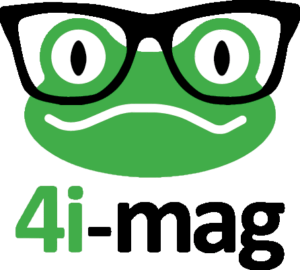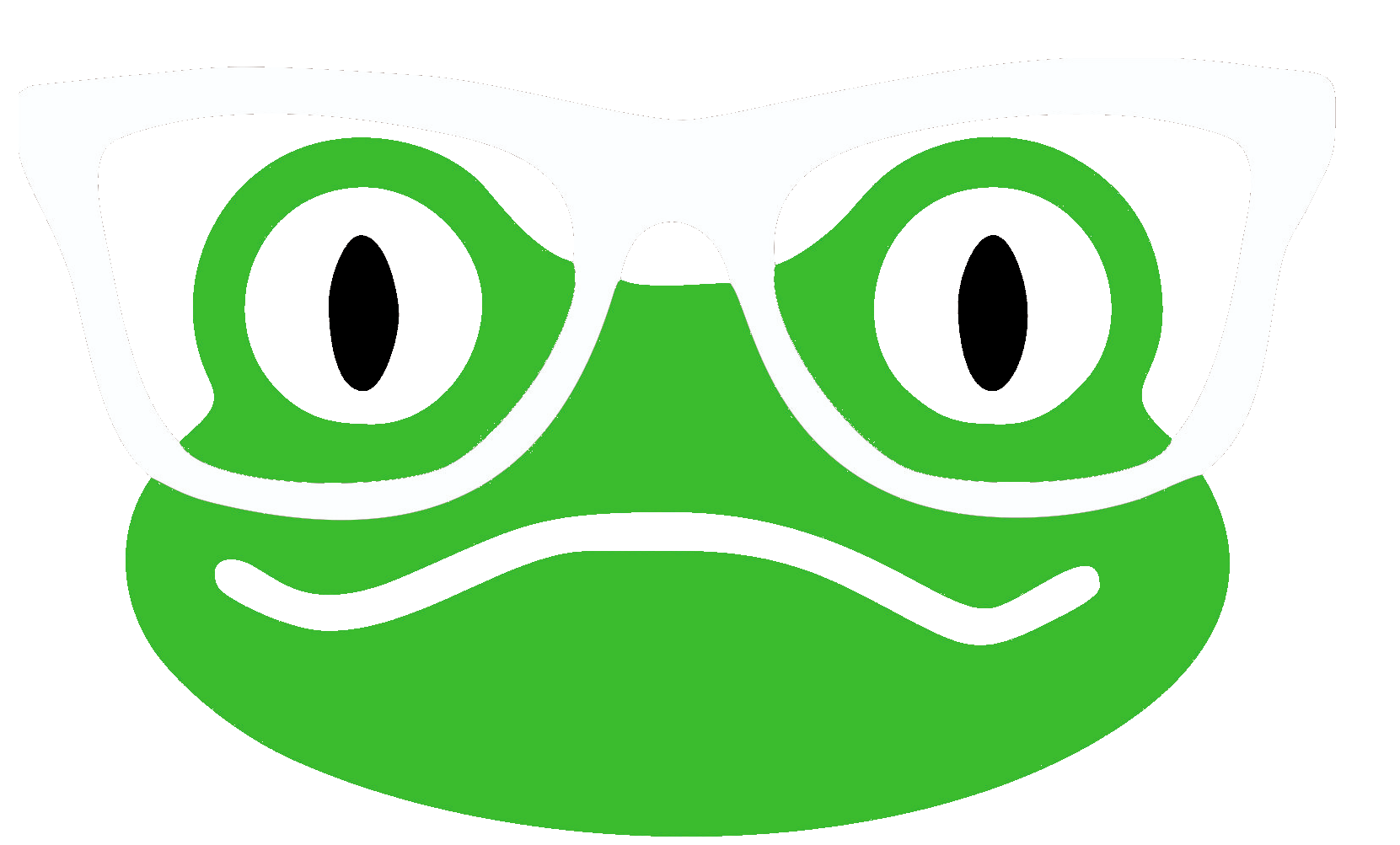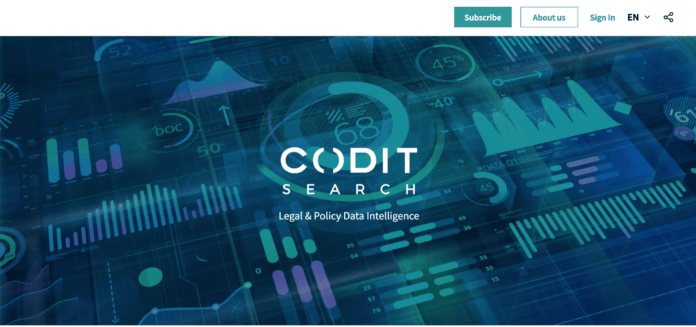Compared to decades ago, modern-day people’s everyday questions are easily resolved with an easy, convenient remedy: Google.
The first major search engine in the world has most of the answers to common questions, such as disease symptoms or recommended dinner recipes. It became such a popular information source that its name Google is a universally recognised verb for “search on the internet.”

However, does Google also have all the answers to even questions that require broad case studies or professional insights? Some might shake their heads upon hearing this question. The search engine tries to provide personified results to the users using algorithms and artificial intelligence (AI), but it sometimes fails to give the best answer that can quench everyone’s thirst for knowledge.
Kim Hong-hyun, a recent university graduate, says he often could not find certain information on Google if his question was too specific or professional.
“I enjoy learning information about current affairs and history via Google,” he said during an interview with 4i-mag. “But if go into too much detail of each event or case, it is sometimes difficult to find what I want from the search results. Wikipedia or other online encyclopaedias are good alternatives to Google then, but it takes unnecessary time and effort to browse through them.”
Also, Kim says that online encyclopaedias might have limited quality of information, as they collect information based on the public’s interests, not the special interests of experts. “It’s not unusual that the information I would like to know is not available in online encyclopaedias,” he said. “I do not have any other options than just to give up finding it then.”
Yang Jiwon, a researcher who works at a finance consulting company in South Korea, says that most of Google’s search results are either too broad or undefined to understand. “I end up searching research papers, instead of using Google, to learn what I would like to know,” she said.
To fulfil these types of needs of experts, some start-ups have come up with an idea to make intelligence platforms that provide professional information of particular topics.
However, does Google also have all the answers to even questions that require broad case studies or professional insights? Some might shake their heads upon hearing this question. The search engine tries to provide personified results to the users using algorithms and artificial intelligence (AI), but it sometimes fails to give the best answer that can quench everyone’s thirst for knowledge.
Kim Hong-hyun, a recent university graduate, says he often could not find certain information on Google if his question was too specific or professional.
“I enjoy learning information about current affairs and history via Google,” he said during an interview with 4i-mag. “But if go into too much detail of each event or case, it is sometimes difficult to find what I want from the search results. Wikipedia or other online encyclopaedias are good alternatives to Google then, but it takes unnecessary time and effort to browse through them.”
Also, Kim says that online encyclopaedias might have limited quality of information, as they collect information based on the public’s interests, not the special interests of experts. “It’s not unusual that the information I would like to know is not available in online encyclopaedias,” he said. “I do not have any other options than just to give up finding it then.”
Yang Jiwon, a researcher who works at a finance consulting company in South Korea, says that most of Google’s search results are either too broad or undefined to understand. “I end up searching research papers, instead of using Google, to learn what I would like to know,” she said.
To fulfil these types of needs of experts, some start-ups have come up with an idea to make intelligence platforms that provide professional information of particular topics.
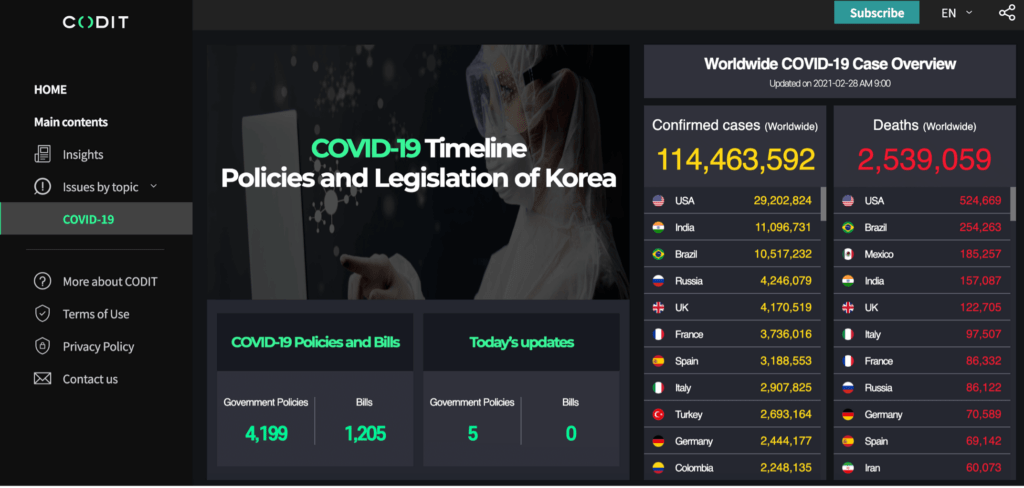
CODIT’s CEO Ji-eun Chung, former policy manager at Organisation for Economic Cooperation and Development, says that the platform targets government affairs managers who take care of compliance issues of their companies or organisations.
“It is extremely difficult for companies to find information about laws, regulations and policies relevant to their business on Google,” Chung said. “But compliance issues are becoming more important with the emergence of environmental, social and corporate governance (ESG). … I want our platform to be like Google for political and policy sectors.”
While the platform is currently serviced in English and Korean and deals with South Korean issues only, CODIT plans to expand its business on a global scale. Since last October, it started to provide policy analyses of the United States and other countries in the platform to attract more non-Korean users.
The company also recently launched a research centre for AI technology to make the platform’s search results seem more customised to users’ needs. The centre, established in the first month of this year, already obtained three patents in the country and now aims to win international recognition.
“CODIT’s AI Research Centre will enable users to resolve compliance issues more easily with information of laws, regulations and policies available on our platform,” Chung said.
Since its foundation, CODIT secured seed money from a South Korean start-up accelerator MashUp Angels and received some additional funding from the Korea Tech Incubator Program for Startup.
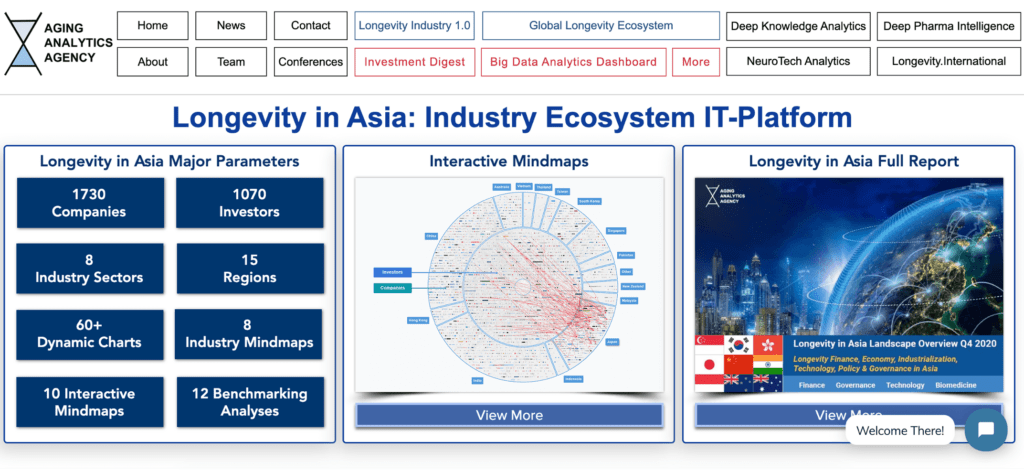
Google for ‘Longevity Industry in Asia’
While CODIT’s AI-powered platform focuses on the government affairs, Deep Knowledge Group’s platform specialises in the longevity industry in Asian countries.
Deep Knowledge Group is a United Kingdom-based consortium of companies and non-profit organisations that work and study emerging technologies, such as AI, FinTech, GovTech and InvestTech.
In January, the consortium introduced an intelligence platform titled ‘Longevity in Asia 2020’ to showcase analyses of the longevity industry in China, South Korea, Japan, Singapore and other 11 countries and regions in Asia.
“The longevity is a sector characterized by extreme levels of complexity which — when combined with the massive socioeconomic issues and opportunities presented by population ageing — make it an extremely challenging arena to navigate, and to formulate and execute intelligent strategic decision making within,” the group explained via its official introductory letter of the platform.
The platform’s purpose lies in showing what strengths and weaknesses do Asian countries have within the longevity industry. Deep Knowledge Group expects its platform to also contribute to experts and policy makers coming up with better policy decisions for the industry.
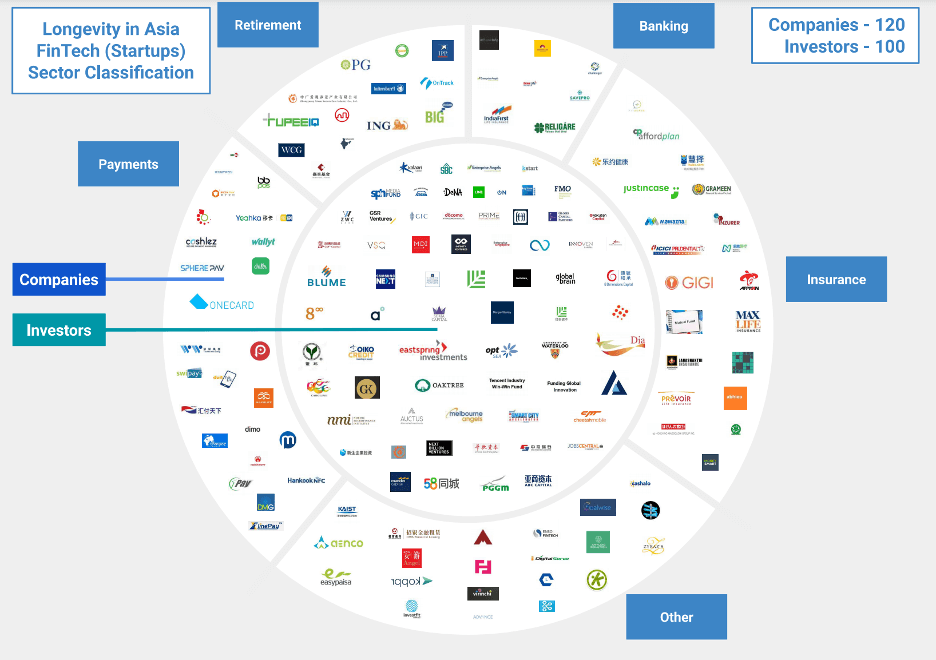
“Compared to many other regions, Asia is uniquely equipped to deal with these challenges [of ageing population] thanks to many distinct features, including a very high level of deep-tech adoption, looming levels of population ageing,” the group added.
Lachezar Zanev, former project manager at Deep Knowledge Group, told 4i-mag that the platform’s information is based on a study of over 1,700 companies and 1,000 investors from eight longevity industrial sectors in Asia. The sectors that the platform studied are AgeTech; AI for Longevity; Regenerative Medicine; Biomarkers of Longevity; Geroscience; Longevity Neurotech; P4 Medicine; and Longevity FinTech.
“The project features over a dozen interactive and static industry landscape mind maps, more than 60 dynamic charts and graphs and detailed international, intercontinental and region-specific benchmarking,” Zanev said. “It also has a special highlight on activities within the growing Asian Longevity Financial Industry.”
Unlike CODIT Search or other Google-like intelligence platforms, however, the group’s platform is rather like a book. Users need to find the information they need by navigating through the tabs and sub-pages, instead of typing a keyword on a search tab. The platform is also not powered by AI, which means it does not provide a personified or curated search result to the users.
Still, unlike other platforms, Deep Knowledge Group’s platform has an AI-assistant chat service at the corner of the main page. Users can be connected to the researchers and managers of the platform through this AI-powered chat. If a user asks a question via the chat, the AI-assistant asks for the email address and the name of the user and lets the platform’s officials contact them via email within a few days.
